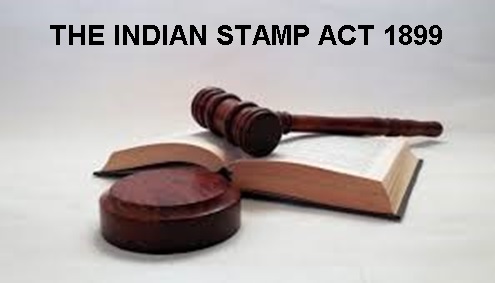A company, after its incorporation has to comply with the provisions of Section 10A of the Companies Act, 2013 (the Act) prior to starting its business or prior to exercising its borrowing powers. Whether it is a private company or public company, if it is a company with a share capital, unless subscribers to the Memorandum of Association (MoA) have already paid the money due on the shares subscribed by them while signing the subscription clause of the MoA, a company is not entitled to commence the business for which it has been incorporated nor would it be entitled to borrow money, from any source. The law on this subject, requires the company to file a duly verified declaration for the purpose of notifying the Registrar of Companies (RoC), that subscribers have paid the money due on the shares subscribed by them. In addition, failure to file the said declaration, may result in RoC initiating action to striking off the name of the Company from the register of companies.
With the above preface, we are answering some frequently asked questions touching upon the said subject.
Q. What is the timeline for receiving subscription money?
The Companies Act, 2013 (the Act) does not explicitly provide a timeline for remitting subscription money by the subscribers to the MoA. However, based on a plain interpretation of Section 10A of the Act, one might infer that subscription money should be brought in within 180 days of incorporation, i.e., before filing Form 20A for the commencement of business. On the other hand, Section 56(4)(a) of the Act prescribes a two-month period from the date of incorporation for issuing share certificates to the subscribers of the MoA. Since share certificates can only be issued after the receipt of subscription money, it can be inferred that subscription money must be received within two months from the date of incorporation.
Moreover, if a subscriber to the MoA does not hold the beneficial interest in the company’s shares, Section 89 of the Act, in conjunction with Rule 9(1) of the Companies (Management and Administration) Rules, 2014, will apply. In such cases, the subscriber/member must submit a declaration regarding their ostensible / beneficial ownership within 30 days from the date their name is entered in the company’s Register of Members. Since the subscriber’s name is recorded in the Register of Members upon the company’s registration [as per Section 2(55)(i)], it can be inferred that the subscription money in such cases ought to be brought in within 30 days of the company’s incorporation to comply with Section 89, where applicable.
Q. What is the timeline to issue share certificates to the subscribers of the memorandum?
Section 56(4)(a) of the Companies Act, 2013 specifies that share certificates must be issued to the subscribers of the MoA within two months from the date of incorporation subject to the receipt of subscription money.
Q. Can subscription money be received after the issue of share certificates?
The Company must receive the share subscription money before issuing share certificates. This is because the amount paid-up on the shares is must be mentioned on the share certificate as per Rule 5 of the Companies (Share Capital and Debentures) Rules, 2014. The role of a share certificate is two fold: one is that it is a declaration that the person named in the certificate is the rightful owner of shares stated therein and two, that the person named therein has paid up the value or the monies relatable to the said shares.
Q. Is it mandatory to pay the full subscription money before the issuance of share certificates, or can a subscriber pay part of the subscription amount after the share certificates are issued?
The company cannot issue a share certificate without receiving the entire subscription amount in full which alone would satisfy the requirement that subscribers have paid the money due on their shares.
Q. Is it required to mention the paid-up share value on the share certificate?
Yes, Rule 5 of the Companies (Share Capital and Debentures) Rules, 2014 mandates that the share certificates be issued in accordance with a board resolution using Form SH-1 (or in a similar format). The certificate must include the subscriber’s name (or in the case of issue of shares in the name of the person to whom the shares were allotted), the details of the shares, the amount paid-up, and with the signatures of two directors (or a director and company secretary, if applicable).
Q. Is it mandatory to issue the share certificate in the format of Form SH-1?
Rule 5 of the Companies (Share Capital and Debentures) Rules, 2014, states that issuing share certificates in the format of Form SH-1 is a guideline, not a strict requirement. As long as the format used complies with the rules, it can be considered valid.
Q. Can a company initiate borrowing before filing Form 20A?
No. A company cannot exercise its borrowing powers before filing Form 20A. Section 10A(1) of the Companies Act, 2013, along with Rule 23A of the Companies (Incorporation) Rules, 2014, clearly stipulates that a company is not allowed to commence any business or exercise its borrowing powers until a declaration by the director is filed in Form 20A.
Q. What is the penalty for non-issuance of share certificates to the subscribers of the MOA within 2 months?
Failure to issue share certificates within two months of incorporation attracts a penalty under Section 56(6) of the Companies Act, 2013. In such cases, the company and every officer who is in default shall be liable to a penalty of ₹50,000/-
Q. Merely on account of non-filing of Form 20A within 180 days of incorporation, is RoC entitled to remove the name of the newly incorporated company from the Register of Companies?
No. Section 10A the of the Act makes it clear that in order to initiate action for striking off the name of a company, the following twin conditions are required to be satisfied.
(i) The aforesaid declaration has not been filed with RoC within the prescribed time of 180 days of the date of incorporation of the company; and
(ii) RoC has reasonable cause to believe that the company is not carrying on any business or operations.
While RoC will have automated system to notify him of the default on the part of any company in filing the said verified declaration within 180 days of incorporation, he will require issuing notice to a defaulting company to be able to say that he has reasonable cause to believe that the company is not carrying on any business or operations.
Q. What is the penalty for non-filing of Form 20A?
Non-compliance with Section 10A can result in penalties. The company may be liable for a fine of ₹50,000, and every officer in default may incur a fine of ₹1,000 per day the default continues, up to a maximum penalty of ₹1,00,000.
Disclaimer: This FAQ should be considered only as an explainer on the subject and not an expert advice. Should you have any further query or require any further clarification, please feel free to write to compliances@ksrandco.in






